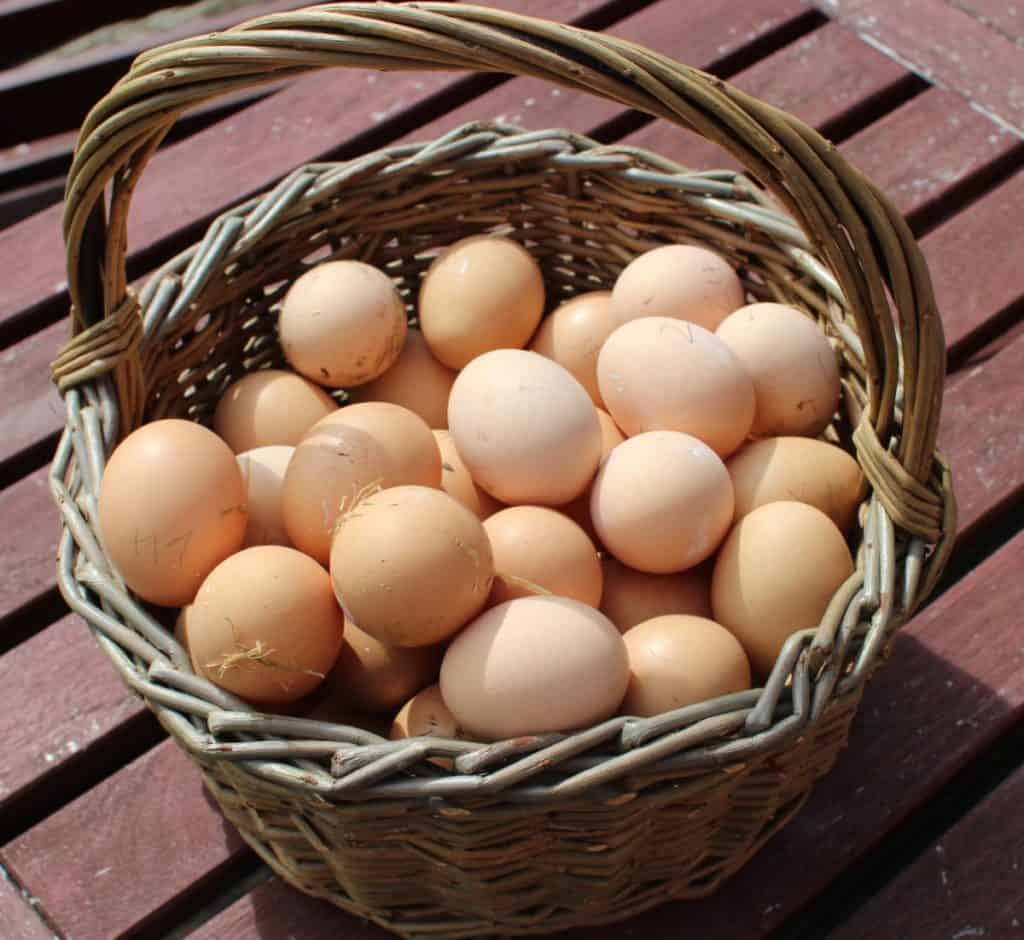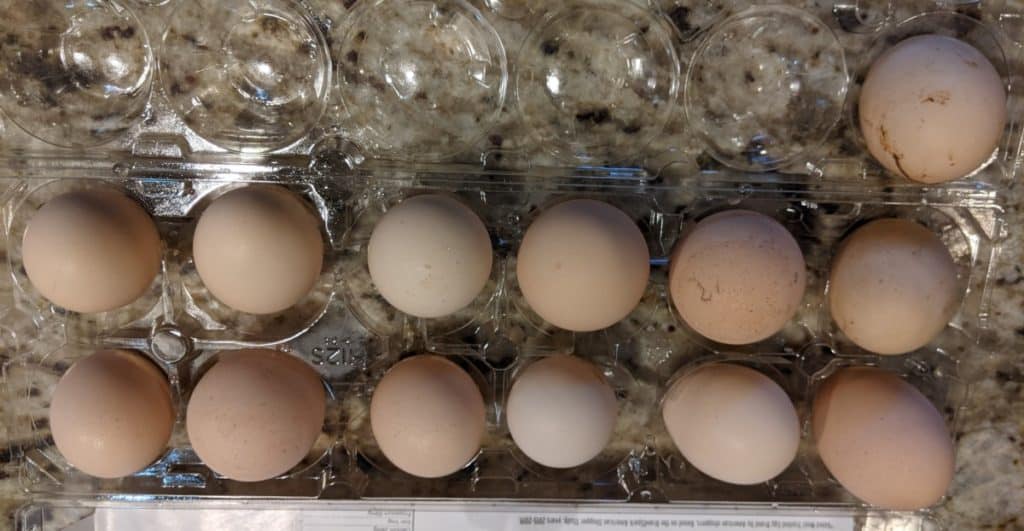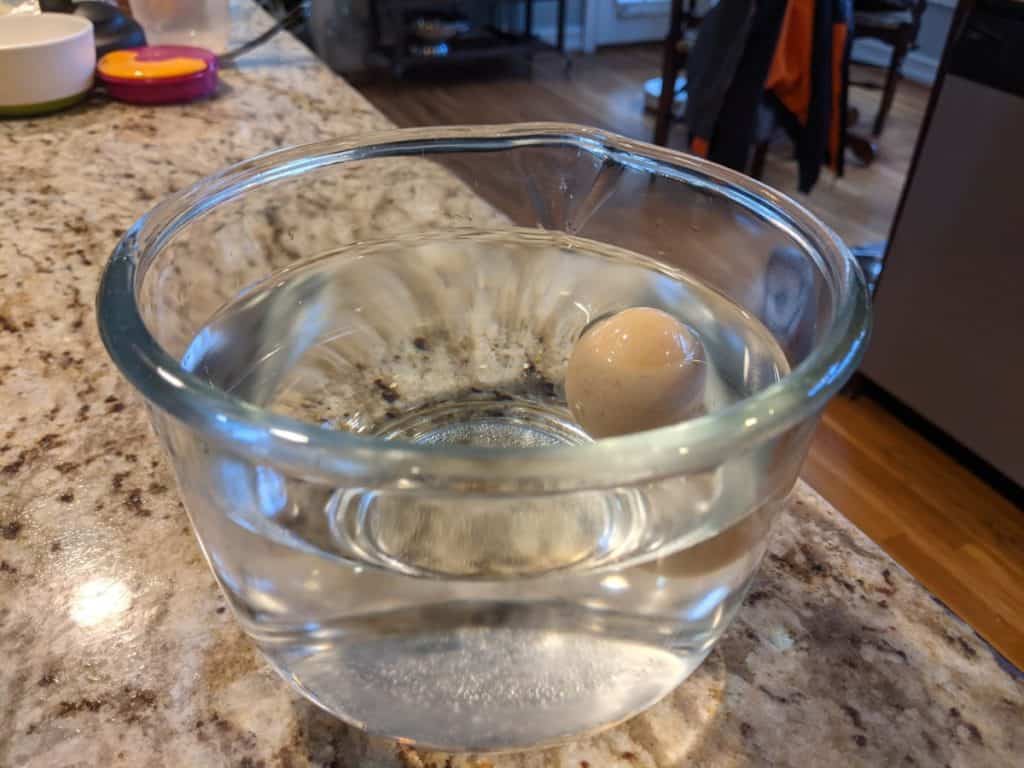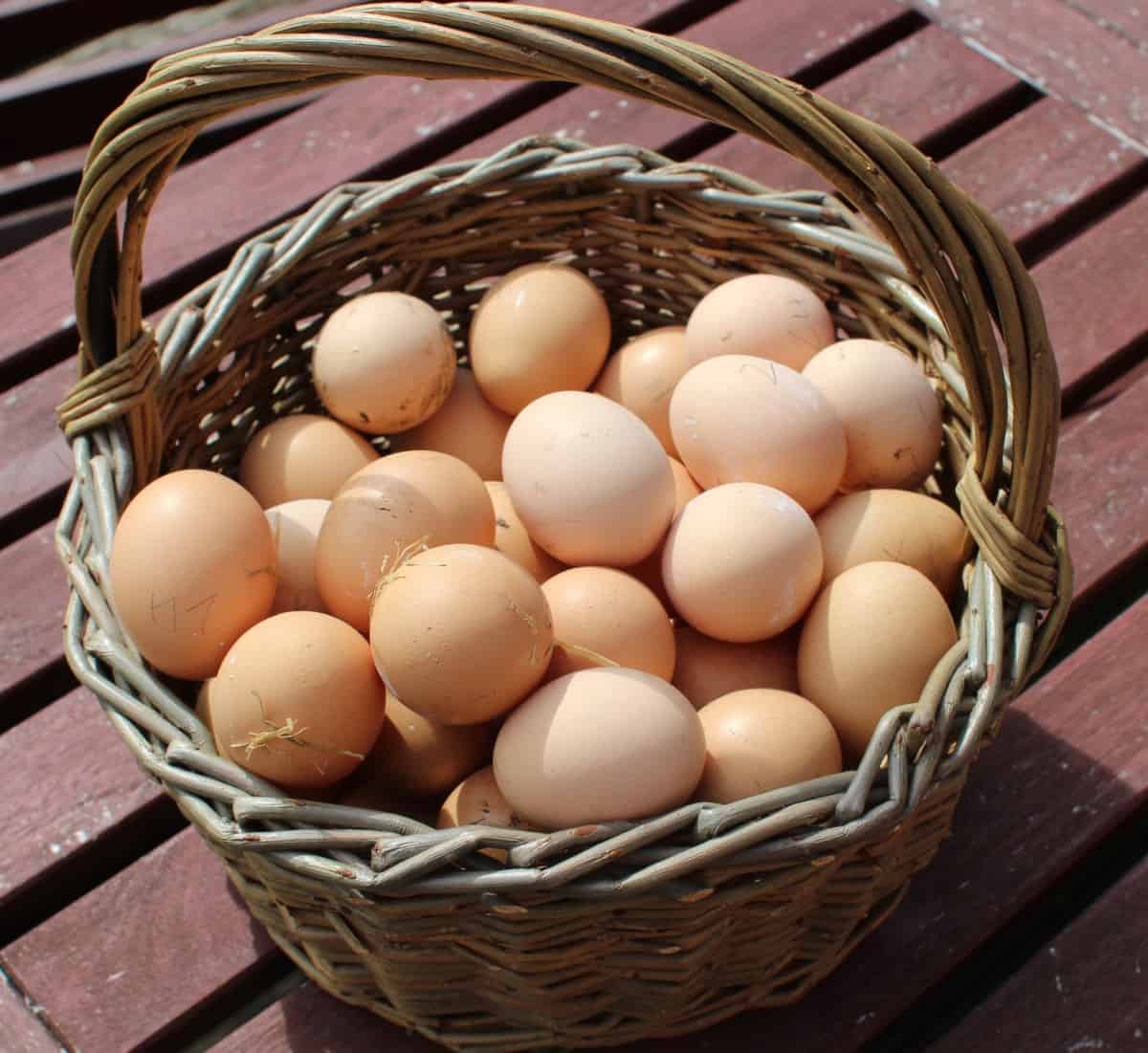
Nothing beats waking up in the morning walking to the nesting box and grabbing some freshly laid eggs for breakfast.
Eggs are an excellent source of protein. They can be eaten as is, or used in a variety of dishes from breakfast to desserts! Since they’re so versatile, you should try to keep them as long as possible.
But how long do they last at room temperature? How Long do they last if you put them in the refrigerator?
I have experience raising chickens for their eggs. After doing some research, I found out the answer to how long fresh eggs last and other related questions.
How Long Do Fresh Laid Eggs Last? Freshly laid eggs will last 15 weeks in a refrigerator and still be at Grade A quality whether they are washed or not. Unwashed eggs kept at room temperature can last up to four weeks but the egg quality will start to degrade after one week. Refrigerating eggs after collecting them is the superior choice.
- How Long Do Fresh Eggs Last Unrefrigerated?
- How Long Do Fresh Eggs Last In The Fridge?
- How Long Do Frozen Eggs last?
- What is the Coating on Chicken Eggs?
- How Should You Store Fresh Eggs?
- How to Wash Fresh Eggs?
- How to Check If An Egg Is Bad?
- Can You Eat a Cracked Egg?
- Can you get sick from eating old eggs?
- How Do You Know If an Egg Has Salmonella?
- To Sum It Up
How Long Do Fresh Eggs Last Unrefrigerated?
How old is your egg? If you have eggs that are less than a month old, congratulations! You can leave them out on the counter for at least one month without incident.
However, they may not be top quality after a few weeks.
If you wash your eggs after collecting them you must put them in the fridge as the egg bloom will have been washed off. This will cause the egg to become porous and vulnerable. Bacteria are then able to enter the egg more easily.
However, following this period of time, it is advised to store them in the fridge. This isn’t just good advice for our taste buds- spoiled eggs can lead to serious health risks such as food poisoning and salmonella!
If you have the room put them in the fridge to start. The research I found in the next section will tell you why.

How Long Do Fresh Eggs Last In The Fridge?
Your eggs are the lifeblood of any meal. As a staple in most kitchens, you’ve probably found yourself wondering which is better: keeping your freshly collected eggs on the counter or in the fridge?
Well, it all depends on what you’re looking to do with them! If you want easy access to your eggs and to extend their shelf life keep your fresh eggs in the fridge from the start.
This is contrary to what many european countries believe. They do not even refrigerate eggs after collecting them. Many backyard chicken keepers feel the same way in the United States.
What does the science tell us?
A study by researchers on 5,400 eggs that were stored in the fridge and at room temperature found the following results.
The eggs stored in a refrigerator were still Grade A quality after 15 weeks whether they had been washed or not.
The researchers also found that unwashed eggs that were stored at room temperature went from Grad AA to Grade B in only one week!
That ends the debate for me! Your egg quality will stay higher if you refrigerate the eggs.
How Long Do Frozen Eggs last?
If you plan to freeze your eggs you must separate the egg white from the yolk. Frozen eggs can last up to a year or more under these conditions.
What is the Coating on Chicken Eggs?
The coating on chicken eggs is known as the egg bloom. Before laying the egg the hen adds a protective layer known as the bloom or cuticle to the outside of the egg. This coating protects the eggshell pores from getting bacteria inside them.
The coating also keeps the moisture inside the egg from escaping. The egg bloom helps the egg last longer.
This is why when you wash an egg you can feel the bloom disappearing from the eggshell.
How Should You Store Fresh Eggs?
Should you leave the eggs out at room temperature, or put them in your fridge?
Should you decide to clean them with water as soon as you collect them. You must then store them in a refrigerator as the egg bloom’s protective coating has been removed.
Freshly collected eggs can last for 4 weeks in room temperature if you have not washed off the egg bloom (the protective coating on a freshly laid egg).
How to Wash Fresh Eggs?
Here are some steps to clean eggs:
- Wash the eggs under running water from the faucet or spray them off.
- Dry each one separately with a dry paper towel or cloth.
- Placed the clean eggs in a container or basket.
- Use a sanitizing solution to clean the eggs fully.
How to Check If An Egg Is Bad?
It’s always a gamble if you have eggs that have been sitting around and you don’t know how old they are.
This is common when you collect fresh eggs every day from a nesting box and lose track of which eggs were laid at what time.
If you happen to have some old ones lying around and want to know how fresh they are, try this test:
Fill a bowl or glass with water and gently lower an egg in.
If the egg sinks down to the bottom of the container and lays flat on its side, it’s still worth eating. As seen in the picture below.

However, if it sinks down but stands on one end at the bottom of the glass or bowl-the quality decreases but is still edible.
You can see this egg in the picture below that is has sunk to the bottom but is vertically standing straight up.

If any eggs float up out of the water instead of sinking-avoid eating them! They have gone bad as seen in the picture below.

Can You Eat a Cracked Egg?
No, you should never eat a cracked egg even if it’s been refrigerated. This is because bacteria may have penetrated the outer shell of the egg.
You run the risk of getting salmonella. Toss the egg in the trash and be done with it.
Can you get sick from eating old eggs?
Yes, you can get sick from eating old eggs. Salmonella is a bacteria that can cause serious health problems.
It’s important to keep eggs refrigerated, discard eggs with cracked shells, and cook them thoroughly before eating them.
How Do You Know If an Egg Has Salmonella?
There is no way to tell if an egg has salmonella by looking at it. Salmonella is a bacteria that can be found inside and outside an egg’s shell.
Itcan take time for the bacteria to seep through an egg. Thats why it’s important to cook eggs thoroughly in order to kill salmonella and other pathogens.
Even fresh eggs may contain Salmonella. Healthy-looking eggs could have cracked shells or spots on their yolks without these being visible from just looking at them!
There are many ways to tell whether your fresh eggs do indeed contain those harmful bacteria.
You can check for small cracks in the egg shell and look for texture abnormalities around the exterior. Also sniff the eggs for any bad smells that could be emanating from within the egg.
If you find any of these discard the egg immediately!.
To Sum It Up
Before doing this research I used to leave my freshly collected eggs out in a carton for a couple of weeks. Now if I have the room my eggs will go in the refrigerator to keep them fresher longer.
I still like to show off some of my eggs though to friends that come over so a few will still be left out on occasion.

